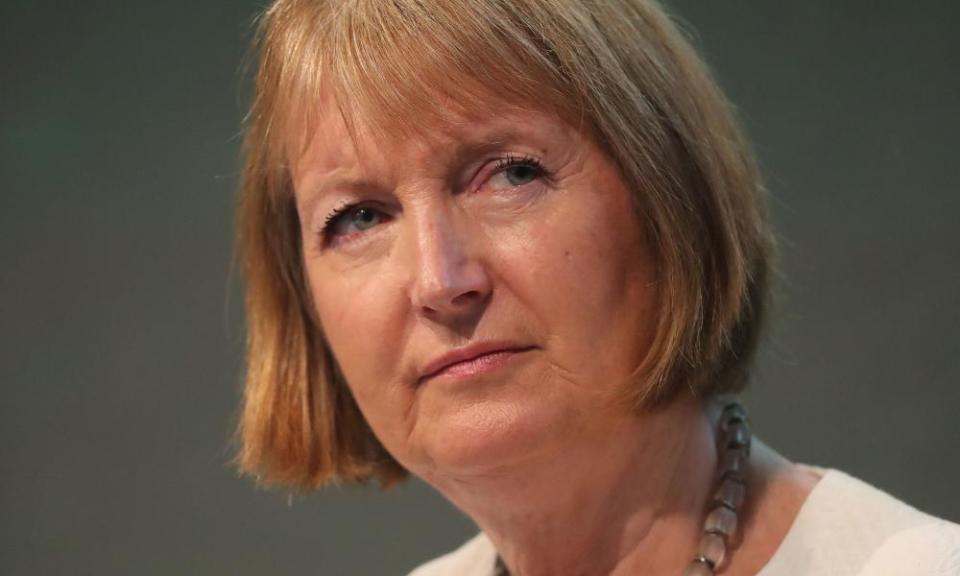Men who harass women from cars should be prosecuted, MPs say

Men who harass women from cars should face criminal charges, a cross-party group of MPs has urged, as the government comes under mounting pressure to criminalise sexual harassment.
Labour’s Harriet Harman and Caroline Nokes, the Conservative chair of the women and equalities select committee, have formed a cross-party alliance to push the government to beef up anti-misogyny measures via amendments in the police, crime, sentencing and courts bill.
“It makes absolutely no sense that kerb crawling is an offence if its aim is to solicit prostitution, but kerb crawling a schoolgirl to shout sexualised abuse at her is not – the law needs to be changed,” said Harman.
Harman, Nokes and others including the Conservatives Peter Bottomley and Andrew Mitchell, and the Green party MP, Caroline Lucas, are also calling for street harassment to be criminalised and for stricter controls over the use of the sexual history of complainants in rape trials.
Nokes said that when she had first discussed the idea of criminalising sexual harassment on a radio show, she received some negative feedback.
“People were basically saying to me, oh come on love, get a grip,” she said. “But when I spoke to women, they were living with this on a daily basis. Sexual harassment, catcalling, is rife, it’s unwanted, in some cases, it can be downright intimidating and scary. And it is absolutely no way for any kind of civilised society to conduct itself.”
Watch: 'We are letting far too many women down'
Earlier in the year the home secretary, Priti Patel, met the organisers of Our Streets Now, a campaign group set up by sisters Gemma, 16, and Maya Tutton, 22. With the charity Plan International UK they launched a campaign called #CrimeNotCompliment and created a “ready-made bill” to tackle the issue.
Rose Caldwell, the charity’s chief executive, said a standalone law criminalising all forms of public sexual harassment was necessary. “Girls in the UK are facing harassment every day. They’re being followed, shouted at, touched and groped – and it needs to stop,” she said. “With this legal change girls and women would finally begin to feel safer in public spaces.’
In March a poll by UN Women UK found more than four-fifths of young women in the UK had been subjected to sexual harassment, and most women had lost faith that the abuse would be dealt with.
The women’s rights campaigner Nimco Ali said the fact that street sexual harassment was still legal was “bizarre”. “We ban littering, we ban smoking in public areas – now, let’s ban the behaviour of men who can’t act civilly,” she said. “I don’t think people are conscious of how it corrodes women’s experience on a day-to-day basis. Making it a crime would be a massive step forward.”
Harman is also pushing for stricter limits on the use of sexual history in rape trials via the bill, now at committee stage.
Under current laws a complainant’s sexual history cannot be used as evidence unless an application (known as a section 41) is made, but the proposed amendment would exclude the use of past sexual behaviour with another person to prove consent except for in very limited circumstances. It would force barristers to apply to introduce sexual history evidence pre-trial, while also giving complainants legal representation to challenge any application. Legal officials, including judges, would also have to complete training to sit on sexual offence trials.
In 2017 a Crown Prosecution Service case review ordered by the Ministry of Justice found the “law was working”, but Harman argued that recording of the use of sexual history was flawed and other studies showed it was more frequently used.
“The use of past sexual history in rape trials is the ultimate act of victim shaming,” she said.
Watch: Rape survivor calls for public awareness campaign to make face covering exemptions clearer

 Yahoo Finance
Yahoo Finance 